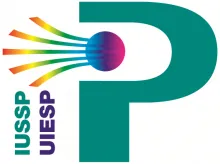The International Union for the Scientific Study of Population's (IUSSP) mission is to promote the scientific study of population, encourage exchange between researchers around the globe, and stimulate interest in population issues.
To further its mission, the IUSSP:
- organizes seminars and workshops to further scientific knowledge;
- organizes training and distance-learning activities to improve research capacity;
- organizes the International Population Conference every four years to bring together the world specialists in the field;
- publishes outcomes of its scientific activities in a variety of publications, aimed at a scientific audience, policy makers or for the general public;
- maintains a website, to help its members collaborate in a variety of ways and to provide population information for a general audience.
The IUSSP is the world population association. Founded in 1928, its members are over 2,000 population scientists based in 130 countries, from different disciplines (demography, economics, public health, statistics, sociology, anthropology, etc.) and affiliations (academic, not-for-profit, government, and the private sector). The union convenes experts on issues of scientific and policy relevance and informs policymakers of the implications of population dynamics for human welfare. Its aim is to enable decision-makers, researchers, and civil society to make better use of population data to inform development priorities and interventions. It maintains close relations with the regional population associations (including UAPS for Africa, APA for Asia, and ALAP for Latin America) and with many of the top national and regional research centers active in this area. At the world level, the IUSSP is the only population sciences organisation with Special consultative status with the United Nation’ Economic and Social Council (ECOSOC).
Priorities as a partner of the Global Partnership for Sustainable Development Data
Demographic data – population estimates and statistics related to health and mortality, fertility and marriage, migration, etc. – form the bedrock of almost all measures and indicators of human activity. Technical demographers are preoccupied with measurement issues and the quality of the data used in the analysis of population questions. The demographic training of many IUSSP members gives them a rigorous understanding of the linkages between human population stocks and flows across space and time and the ability to assess the analytical limits of data on populations, to link and process data from disparate sources, and to see data as part of a larger, systemic framework. This, and their ability to evaluate data quality and to link and process data from disparate sources are valuable skills for work on data for development.
IUSSP, through its scientific and training activities, seeks to contribute to data for sustainable development by:
- Improving, validating and implementing methodological advances in the analysis of sustainable development data especially the use of geolocated population data at disaggregated levels (essential to ensure that “no one is left behind”),
- Creating opportunities for productive exchanges and the establishment of collaborations between demographers and non-demographers: epidemiologists, computer data scientists, statisticians, and econometricians working on sustainable development data.
- Disseminating results and recommendations to the scientific and applied data communities, and
- Strengthening the capacity of population researchers to use new types of data and methods through its training activities.
